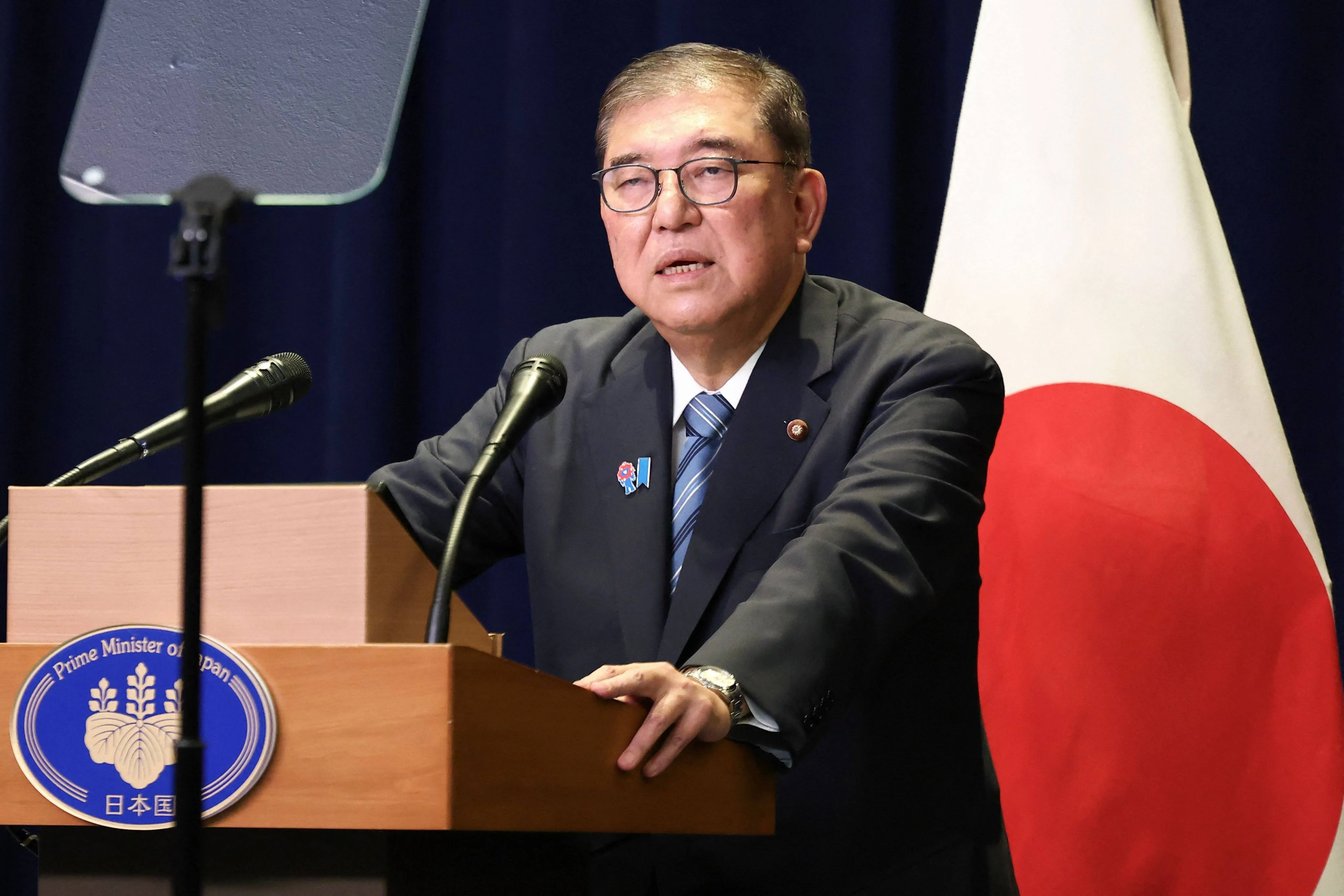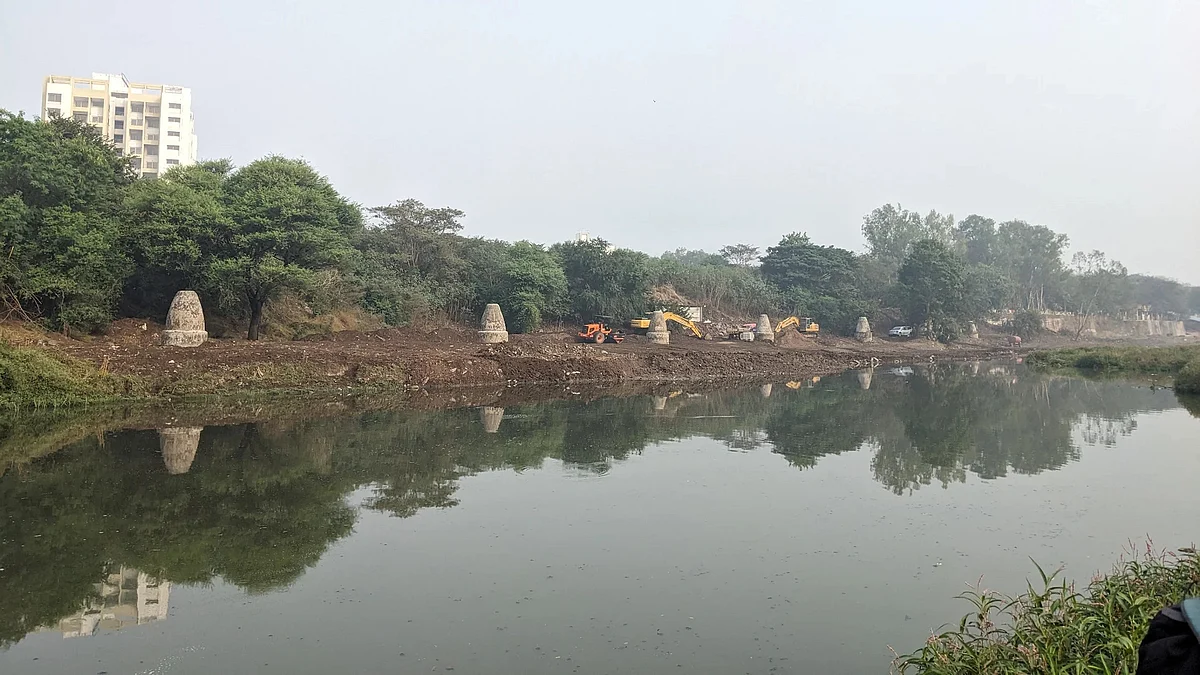By Maria Siow
Copyright scmp

When Japanese Prime Minister Shigeru Ishiba announced on September 7 that he would step down after his party was trounced at the parliamentary polls earlier this year, the country was already staring at what could be an era of flux, marked by revolving door leaders who are slaves to approval ratings amid relentless electoral cycles.
And this trend, according to observers, is likely to persist, pulling Tokyo into a period reminiscent of the 1990s and 2000s when prime ministers were replaced almost yearly and Japan was said to have struggled to project confidence domestically and abroad.
While short-lived leaders are expected to make populist domestic decisions, foreign policy hinges on the political affiliations of whoever takes the top job, analysts say.
On Monday, Japan’s ruling party formally kicked off its leadership race. The victor among the five candidates in the Liberal Democratic Party’s (LDP) October 4 election is expected to become prime minister through a parliamentary vote.
In office for barely a year, Ishiba’s quick exit following the short stints of Yoshihide Suga and Fumio Kishida has once again raised concerns of a “revolving door” period, one that stands in sharp contrast with Shinzo Abe’s long tenure from 2012 to 2020.
Many observers have credited the slain Abe’s steady stewardship for reviving the economy and stabilising and strengthening Tokyo’s security alliance with Washington.
For Masato Kamikubo, a professor at the Graduate School of Policy Science at Japan’s Ritsumeikan University, the trend of short-lived prime ministers is likely to continue.
“This is because there are simply too many elections,” he said, referring to the House of Councillors poll which occurs every three years. In the intervening period, the prime minister may also dissolve the House of Representatives – which rarely serves its full four-year term – triggering a general election.
The House of Councillors and House of Representatives form the National Diet, Japan’s legislature. Both the upper and lower houses – with 248 and 465 members respectively – are directly elected. In addition to passing laws, the Diet is formally responsible for selecting the country’s prime minister.
“National elections occur almost annually in Japan,” Kamikubo said, noting that parliamentarians constantly feared electoral defeat.
“When cabinet or party approval ratings dip, calls for the prime minister’s replacement swiftly emerge within the party and this makes it hard for both the prime minister and parliamentarians to calmly formulate policy,” he said.
“The development of social media has made cabinet approval ratings fluctuate more sensitively, intensifying this trend. Whoever becomes the next prime minister, it is very difficult to maintain a long-lasting administration.”
Purnendra Jain, emeritus professor in Asian Studies at the University of Adelaide, points to the return of “old-style LDP factional politics” in ensuring Japan’s prime ministership will continue to be in flux.
Each faction seeks to promote its own candidate, he notes, even though most branches are supposed to have disbanded following the 2023-24 Japanese slush fund scandal involving the misuse of campaign funds by LDP members.
The slush fund scandal emerged in late 2023 following a criminal complaint alleging five LDP factions, including two previously led by Abe and Kishida, under-reported more than 600 million yen (US$4 million) in campaign revenue from political fundraising parties.
Several LDP lawmakers, including those from the Abe faction, were indicted and later resigned. While Kishida’s government toughened penalties for lawmakers involved in political funds scandals, the controversy slashed his approval ratings as he battled declining public trust and rising prices, prompting him to call time on his prime minister tenure in 2024 after three years in charge.
With Ishiba yet another leader soon to make way, the slate of candidates vying to replace him does not offer much hope, analysts say.
None had “the charisma, solid party backing, and broad public support necessary for a lengthy premiership”, Jain noted. “Whoever becomes prime minister will likely face a fragile political future, with rivals waiting in the wings to seize the opportunity.”
The LDP has never governed without holding a majority in at least one house of the Diet, but Jain warns its current minority in both chambers “makes a leader’s position even more precarious, since a small failure could quickly end a premiership”.
Levi McLaughlin, a professor at North Carolina State University whose work deals primarily with politics in contemporary Japan, shares similar sentiments, citing the LDP’s weakness as head of a minority government and its general lack of popularity.
“However, it is also likely that it is too soon to discount the possibility that another strong leader may emerge,” McLaughlin said, noting that Agriculture Minister Shinjiro Koizumi and former economic security minister Sanae Takaichi currently led the pack in votes within the LDP and among the public.
Mayumi Ito, a senior administrative accountant who lives in Tokyo, said Koizumi was once ridiculed for his image-focused approach but had “regained some prominence” by successfully lowering rice prices.
Given Koizumi’s relative youth – he is 44 – Ito believes he has further scope to develop his personal and political strengths.
“Japan badly needs a younger and more dynamic leader to come up with fresh ideas,” the 51-year-old Ito said.
Takaichi was aiming to be Japan’s first female prime minister, but her policies were not always seen as advancing gender equality, Ito added.
The LDP-Komeito partnership is also a factor for the next leader to consider.
“How they manage the current two-party coalition and how they negotiate with other parties once they become PM will determine their longevity in office,” McLaughlin said.
In July’s election, the LDP-Komeito coalition won only 47 seats instead of the 50 it needed to maintain control in the upper chamber of the country’s bicameral parliament.
Kristi Govella, associate professor at the University of Oxford, said Japan’s next prime minister would inherit the difficult agenda of building consensus within a divided LDP, addressing voter concerns about economic conditions, and navigating an uncertain foreign policy environment.
The increasingly fluid domestic political situation will make it very challenging for Japan’s next leader to build a foundation for a long tenure, according to Govella, who is also Japan Chair at the Center for Strategic and International Studies.
“But it is not a foregone conclusion that he or she will be gone in a year … If we think back to when Abe regained the premiership in 2012, few would have predicted that he would go on to become Japan’s longest-serving prime minister,” she said.
Impact on policy
Between domestic and foreign policymaking, analysts say the former is likely to be more affected by short-lived prime ministers, with Japan tackling a myriad of issues ranging from the rising cost of living and stagnant wage growth to an ageing society and a shrinking population.
Frequent elections in Japan meant that economic policies aimed at boosting cabinet approval ratings would generally be prioritised, Kamikubo said, noting that the next leader “will likely tackle high prices as their first priority”.
Inflation countermeasures, tax cuts and economic stimulus were likely to be on the agenda for the new leader, Govella said, given Japanese voters’ concerns about rising prices and difficult economic conditions, coupled with the growing power of the opposition.
“The challenge will be for Japanese politicians to balance short-term economic benefits with addressing the long-term health of the Japanese economy,” she added.
Stephen Nagy, professor of politics and international studies at Tokyo’s International Christian University, said having “revolving door” prime ministers meant that bureaucrats might be wary of investing political capital in a leader’s policies that might change within a year.
This could mean radical and structural reforms necessary to deal with demographics, gender issues, debt, healthcare and pensions would not be implemented.
The rise of anti-globalist parties in Japan such as Sanseito could also pose challenges for a weak leadership, Jain warned.
Once a fringe opposition party, Sanseito built its platform on a nationalist “Japanese-first” agenda, warning against a “silent invasion of foreigners”. It walked away with 14 seats in July’s election.
In terms of foreign policy, however, much would depend on the political leanings of the individual holding the top job, observers note.
Koizumi, Chief Cabinet Secretary Yoshimasa Hayashi and former LDP secretary general Toshimitsu Motegi, who all lean towards the centre, are said to “have a certain degree of trust with the opposition”, according to Kamikubo.
The Constitutional Democratic Party, the Democratic Party for the People, and the Japan Innovation Party followed a centrist-conservative line, Kamikubo said, noting that these parties “are unlikely to adopt a stance of opposing all LDP policies on security matters”.
The ruling and opposition parties might even form a “consensus” to determine security policy – unprecedented since the post-war period – and should that materialise, “Japan’s security and foreign policy could become stronger and more stable than ever before”, Kamikubo said.
If a conservative is elected, such as Takaichi or her predecessor as economic security minister Takayuki Kobayashi, Komeito is likely to object due to ideological differences resulting in policy divisions, and potentially withdraw.
Such a scenario would render the decision-making process for the next cabinet’s security policy highly unstable, Kamikubo warned.
The uncertainty and frequent leadership changes could lead to policy paralysis, thereby affecting Japan’s global role and Abe’s initiatives, Jain cautioned.
These include the concept of the “Free and Open Indo-Pacific” aimed at establishing the rule of law, freedom of navigation and free trade, as well as the Quadrilateral Security Dialogue designed to strengthen security and economic cooperation among Australia, India, Japan and the United States.
“Japan’s economic influence has already declined, [and] with growth slowing, weak leadership preoccupied with domestic politics may further diminish its global impact,” Jain said.
Nagy agrees that a weaker prime minister uncomfortable with foreign policy will find it hard to influence key partners such as the US, India, the EU and Southeast Asia.
Such a leader would also find it difficult to dissuade powers including China, Russia and North Korea from aggressive behaviour, he added.
The issue of security
While the basic direction of Japanese foreign policy is likely to remain consistent, a weaker leadership may affect the country’s ability to pursue its goals with the same intensity.
“Given the current volatility in international politics, many observers are hoping that Japan might be able to step in and fill the leadership vacuum,” Govella noted, pointing to Tokyo’s spearheading of the Comprehensive and Progressive Trans-Pacific Partnership.
The pact was aimed at replacing the Trans-Pacific Partnership proposed during former US president Barack Obama’s tenure but abandoned in the first Trump administration.
“Japan has the potential to play an important international leadership role, but its next prime minister will have to deal with a more challenging domestic political environment than Abe faced during his tenure,” Govella said.
Raymond Yamamoto, an associate professor at Aarhus University in Denmark, posited a more optimistic scenario, saying that despite the LDP’s internal divisions and disagreements with opposition parties, there was broad consensus among the parties and the public for a proactive approach towards tackling Japan’s increasingly unstable security environment.
“Measures to strengthen national security do enjoy strong public support,” he said.
While different prime ministers might emphasise varying priorities, all shared a common focus on reinforcing the country’s alliance with the US and establishing new partnerships in the region and Europe, he added.
Despite this, Yamamoto cautioned that “uncertainty remains over how much the government will invest in security, especially in light of the vast and pressing domestic challenges that also demand attention”.
In a nationwide poll conducted by the Yomiuri Shimbun newspaper in February and March last year, an overwhelming 84 per cent of respondents felt Japan’s national security was under threat.
Thirty-one per cent said they felt strongly that the country’s security was at risk, while 53 per cent said they somewhat felt so, with many identifying China and Russia as threats.



